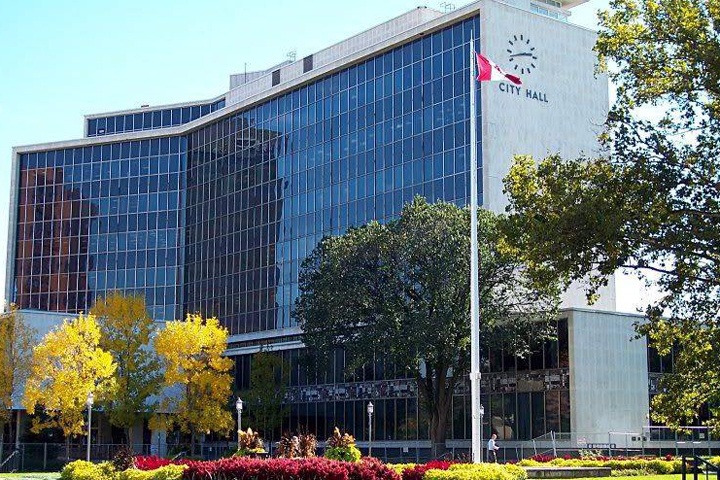Hamilton residents who have questions about the new coronavirus disease, COVID-19, will have a chance to get some answers Wednesday night.

The City of Hamilton is holding another virtual town hall meeting starting at 7 p.m.
The town hall will include Hamilton Mayor Fred Eisenberger, a representative from the city’s office of medical health and the director of the city’s emergency operations centre, Paul Johnson.
Residents can submit questions on the city’s website at www.hamilton.ca/askcovidquestions and via its Twitter account, @cityofhamilton.
The town hall will be broadcast live on 900 CHML and streamed live on the City of Hamilton’s YouTube channel.
Hamilton Public Health says the city has 261 cases of COVID-19 as of April 14, with 23 people in city hospitals receiving treatment for the disease: 15 at Hamilton Health Sciences facilities and eight at St. Joseph’s.

Nine deaths in Hamilton have been connected with COVID-19, according to public health.
Seven of the city’s institutions continue to be hot spots for the virus.

Get daily National news
Outbreaks have been declared at six city nursing homes, with Cardinal retirement residences of particular concern after having reported three deaths since the long weekend: a 71-year-old man died on Thursday, an 88-year-old man died on Friday and a 94-year-old woman was revealed as the ninth death in the city on Monday.
Hamilton has put in place aggressive measures to prevent the spread of COVID-19, closing all municipal facilities and outdoor recreation areas since mid-March.
City council got tough on physical distancing on April 8, voting in favour of a bylaw that prohibits certain activities and regulates physical distancing during the pandemic. Bylaw officers now have the power to fine individuals $500 for a first offence and up to $25,000 for serious or repeat offences.
During last week’s town hall, police Chief Eric Girt said that under the provincial state of emergency declaration, residents who are organizing or attending gatherings of more than five people may be charged under the Emergency Management and Civil Protection Act. Such offences carry a fine starting at $750.
Girt said the fines can be issued even if such a gathering were held on private property.
Johnson, the city’s emergency operations director, also reminded the public that all play structures, escarpment stairs, park amenities, sports fields, city golf courses, dog parks, skate parks, the Bayfront Park boat launch, waterfall locations and several parking lots in high-traffic areas in the city are off limits.
During the Easter long weekend, the city converted First Ontario Centre into a 50-bed overflow shelter.
The arena is now the home of a new “surge” shelter to ease the burden for the city’s overcrowded men’s shelters during the COVID-19 pandemic, according to Johnson.
“They recognize that their setup does not allow for the kinds of physical distancing that will help stop the spread of this, and they are very susceptible to outbreaks because of the numbers of people there,” said Johnson.
The city has also set aside hundreds of hotel rooms for homeless residents who need to self-isolate or stay safe during the pandemic.
Questions about COVID-19? Here are some things you need to know:
Health officials caution against all international travel. Returning travellers are legally obligated to self-isolate for 14 days, beginning March 26, in case they develop symptoms and to prevent spreading the virus to others. Some provinces and territories have also implemented additional recommendations or enforcement measures to ensure those returning to the area self-isolate.
Symptoms can include fever, cough and difficulty breathing — very similar to a cold or flu. Some people can develop a more severe illness. People most at risk of this include older adults and people with severe chronic medical conditions like heart, lung or kidney disease. If you develop symptoms, contact public health authorities.
To prevent the virus from spreading, experts recommend frequent handwashing and coughing into your sleeve. They also recommend minimizing contact with others, staying home as much as possible and maintaining a distance of two metres from other people if you go out.
For full COVID-19 coverage from Global News, click here.









Comments